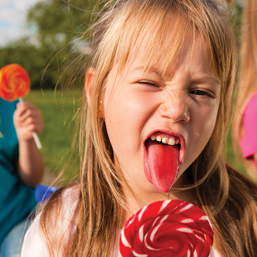
here are few things more exciting in a kid’s life than their first experience at sleepaway camp. How do you prepare yourself and your kid for the big event? Drawing on my own experience as the parent of a teenage boy who’s a happy camper, as well as conversations with other parents who have sent a child to sleepaway camp, I’ve identified eight things you should do when sending your child to camp for the first time.
1. Prepare for camp, together. Shop for all of the items on the camp packing list and pack their bag together, using luggage that isn’t too difficult for your child to carry. You should also build the excitement of going away to camp by talking to your kid about all of the incredible things they’re going to experience, as well as explain the camp’s rules and expectations of the campers.
2. Pack clothing for all kinds of weather. First off, when you and your child pack their clothes, don’t pack their best articles of clothing. Whether it’s a sports camp or other type of camp, there are likely to be outdoor activities where clothing will get stained, torn, or ruined. Pack your child’s most durable clothes. And make sure you pack clothes that prepare your child for all of the elements they might endure: sunny and warm or hot, rainy, windy and cool, or even for a mix of rain and snow (it happens, especially in the mountains). Most importantly, label everything with your kid’s name on it. A good friend of my family forgot to put labels on everything before sending her daughter to her first adventure at sleepaway camp; her daughter came home with mysterious clothing her family had never seen before…
3. Arrange a sleepover - or two. Your kid is going to be away from you for an extended period of time, possibly for the first time in their life. Some kids have no problem adjusting; others might need to dip their feet in the water slowly, so to speak. Organize a couple of sleepovers with their friends at their friends’ houses so they get used to being away from you before they go to camp.
4. Speak to other parents in your neighborhood. No matter how confident your child is that they’re going to be ‘just fine’ at camp without you, it’s always a good idea to bring along some comfort from home to camp. Reach out to other parents from your kid’s school or your neighborhood to see if any others plan on sending their child to the same camp as yours. Most camps let parents request their kid bunk with one or more of their regular friends. Added bonus: They’re going to meet lots of other kids and make lots of new friends, too!
5. Contribute money to the camp candy store. Most sleepaway camps have a store where kids can buy candy with money that parents have contributed to an account. Ask the camp director what amount parents typically contribute to this account, and then contribute that same amount. Kids compare themselves to other kids, and no kid wants to be the odd one out with less money to buy candy than everyone else. Conversely, you don’t want to over-contribute to your child’s candy account, either.
6. Communication and care packages. Find out what the camp’s policy is when it comes to communicating with your kid via email, letters, and care packages. Are you allowed a certain number of emails or letters? How many care packages are you permitted to send, and are there rules about what you can and can’t send? If you’re allowed to include toys in the care packages, choose things that your kid can enjoy with the other campers, like Frisbees and playing cards, instead of toys that only your child can enjoy. For our son’s first sleepaway camp, my spouse and I sent several decks of playing cards with his first care package. All of the kids ended up playing cards with the camp counsellors until late at night.
7. Don’t hang around too long when you arrive at camp. When you finally arrive at camp for the drop-off, do yourself - and your child - a favor and leave once they’re settled in. Bring them to their cabin, help them unpack, if necessary, and then extract yourself as quickly as possible. Your kid is eager to meet all of the other kids, and there’s nothing quite as embarrassing as a parent who lingers around for what appears to be no good reason. Let your child start bonding and connecting with their counsellors and the other kids without you.
8. Don’t worry, they’re going to be fine. Once you’re back in the car, take a deep breath and then head home. Your kid is going to be fine and so will you. Trust me.
Tanni Haas, Ph.D., is a Professor in the Department of Communication Arts, Sciences, and Disorders at the City University of New York - Brooklyn College.
Calgary’s Child Magazine © 2024 Calgary’s Child